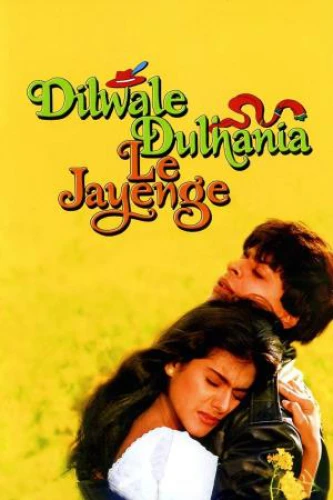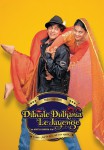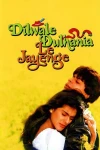DDLJ: A Sexist Saga or a Feminist Fable?
Does DDLJ stand the test of time? Or does is it a feminist fail in 2023?

Dilwale Dulhania Le Jayenge is a film deeply rooted in traditional Indian culture and values, which can present challenges when analyzing it through a feminist lens. While the movie has some progressive elements, it also upholds certain patriarchal norms and reinforces gender stereotypes.
-
Simran's Agency: Simran's character initially conforms to traditional gender roles, adhering to her father's wishes and accepting her arranged marriage. She lacks agency in making decisions about her own life. This can be seen as a reflection of the societal expectations placed on women at the time. Simran's journey towards self-discovery and asserting her desires can be viewed as empowering, but it is important to note that her agency is largely influenced by Raj's actions and interventions.
-
Raj's Behavior: Raj is portrayed as a charming and charismatic character who challenges traditional values. While he encourages Simran to pursue her dreams, he also adopts a patriarchal approach at times. He acts as her savior, making decisions on her behalf and disregarding her family's wishes. This can undermine Simran's agency and perpetuate the notion that women need men to rescue them or make decisions for them.
-
Cultural Expectations and Feminism: The film navigates the clash between traditional and modern values, often portraying traditional values as sacrosanct. While Simran's desire for personal freedom is acknowledged, the film ultimately upholds the idea that a woman's happiness lies within the boundaries of societal and familial expectations. This can be seen as a reinforcement of patriarchal norms rather than challenging them.
-
Gender Stereotypes: The movie does not actively challenge gender stereotypes. Simran is portrayed as a modest and obedient daughter, while Raj embodies more assertive and confident characteristics. These characterizations align with traditional gender roles, with Simran as the nurturing, domestic figure and Raj as the heroic, dominant figure. This perpetuates gender stereotypes rather than subverting them.
-
Cultural Assimilation: While the film explores the theme of cultural assimilation and the tension between individual desires and familial expectations, it falls short of examining the gendered implications of this assimilation. Simran's transformation is primarily framed within the context of romantic love, overshadowing the potential impact on her personal identity and cultural heritage.
In summary, analyzing Raj and Simran's relationship in "Dilwale Dulhania Le Jayenge" through a feminist lens reveals a complex portrayal that incorporates both progressive and regressive elements. While the film attempts to showcase Simran's journey towards empowerment, it ultimately upholds traditional gender roles and relies on male intervention to shape her agency. It is essential to critically examine the film's representation of cultural assimilation and gender dynamics within the context of its cultural and historical setting.



.jpeg)
.jpg)
.jpg)



.jpeg)

